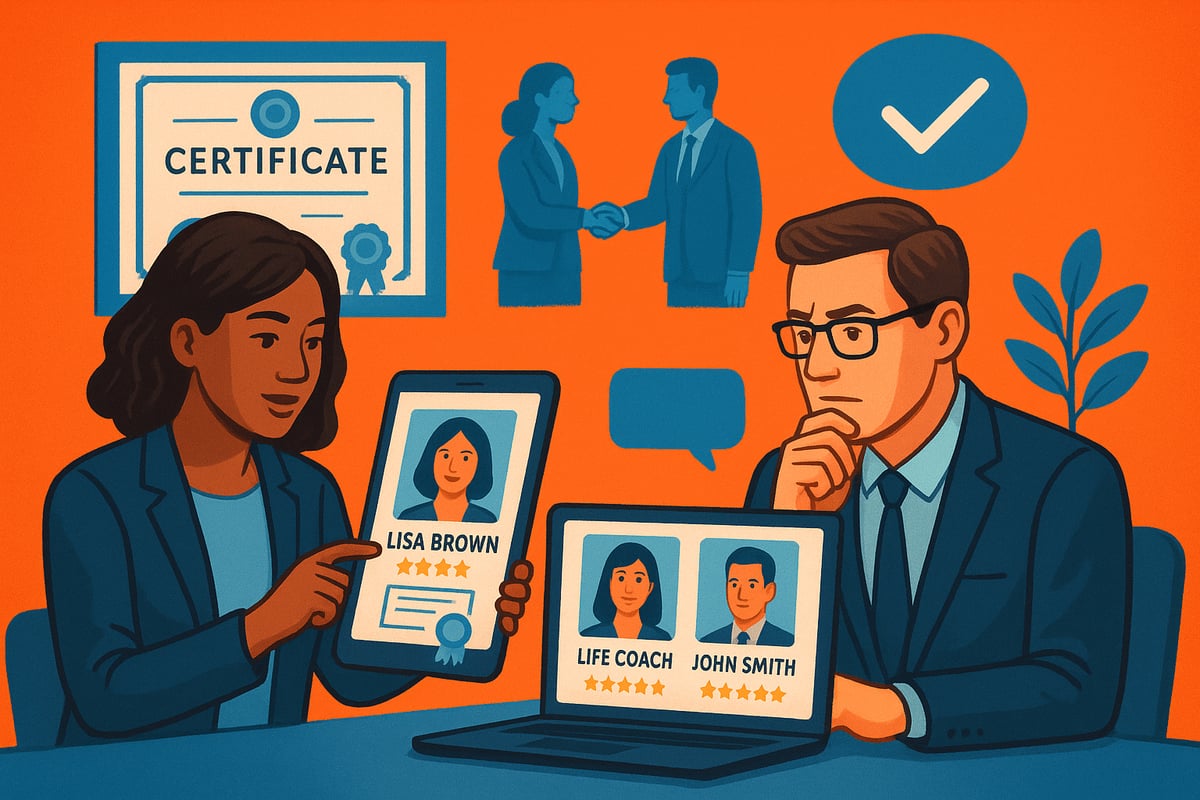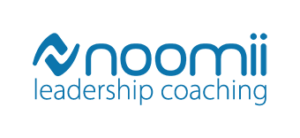The Essential Guide to Life and Business Coaches (2025)
In 2025, the world is turning to life and business coaches like never before. The demand for personal and professional growth has reached record highs, with leaders and individuals seeking expert guidance to navigate rapid change.
This essential guide will help you understand what life and business coaches really do, why they matter, and how you can leverage their expertise for meaningful growth. You will learn about different types of coaches, the measurable benefits they offer, how to choose the right coach, what to expect from the coaching process, how to measure ROI, and the trends shaping the future.
With industry growth rates surging and success stories multiplying, now is the time to explore how coaching can transform your journey.
Understanding Life and Business Coaching
Life and business coaches are dedicated professionals who guide individuals and organizations toward meaningful change and measurable growth. While both focus on empowering clients, life coaches typically help with personal development, well-being, and life satisfaction, whereas business coaches specialize in leadership, team performance, and organizational strategy.
The past five years have seen a dramatic rise in the recognition and acceptance of life and business coaches. Since 2020, coaching has shifted from a niche service to a mainstream tool for personal and professional advancement. This evolution is supported by the International Coaching Federation, which reports significant industry growth and high satisfaction rates. For a deeper look at recent trends and data, see the 2025 ICF Global Coaching Study Executive Summary.
Life and business coaches play several vital roles:
- Accountability partner
- Strategic planner
- Motivator
- Trusted confidant
It is important to clarify common misconceptions. Coaching is not therapy, which focuses on healing past trauma, nor is it consulting, where solutions are prescribed. Instead, coaches enable clients to unlock their own answers and drive sustainable progress.
| Aspect | Life Coach | Business Coach |
|---|---|---|
| Focus | Personal growth, life goals | Leadership, performance, strategy |
| Client type | Individuals | Entrepreneurs, teams, executives |
| Example challenge | Work-life balance, confidence | Scaling a startup, team alignment |
Typical challenges addressed by life and business coaches include career transitions, leadership development, work-life balance, and improving team dynamics. For instance, a life coach might support someone seeking clarity about their next steps, while a business coach could help a founder scale a startup efficiently.
Consider life coaching when you want to enhance your personal fulfillment or tackle life changes. Business coaching is ideal when facing organizational challenges or aiming for professional growth.

The Benefits of Working with a Coach
Working with life and business coaches delivers measurable advantages for both individuals and organizations. By partnering with a dedicated professional, clients gain tailored strategies, accountability, and motivation for achieving their most ambitious goals.
For businesses, the benefits are significant. Coaching drives higher productivity, improved employee retention, and stronger leadership capabilities. According to the International Coaching Federation, 86% of companies report positive ROI from coaching initiatives, and teams often see sales increase by up to 25%.
On a personal level, life and business coaches help clients gain clarity, build confidence, and achieve better work-life harmony. Most individuals report a 70% improvement in work performance after engaging with a coach. The ripple effect extends beyond work, enhancing overall well-being and satisfaction.
Consider the story of an executive who overcame burnout and revitalized their leadership approach through coaching, or a team that transformed its dynamics and surpassed revenue targets. These successes illustrate how coaching can spark lasting change.
Compared to self-directed development, coaching accelerates progress and sustains momentum during transitions, scaling, or major challenges. To explore your own growth areas, you can assess your life balance with the Wheel of Life and identify where a coach could make the biggest difference.

How to Choose the Right Life or Business Coach
Selecting the right life and business coaches can be transformative for your personal and professional journey. The process requires careful consideration, as the right fit ensures a more productive and rewarding coaching experience.

Follow these steps to choose with confidence:
- Identify your goals: Clarify what you want to achieve through coaching. Are you seeking career advancement, leadership growth, or improved work-life balance?
- Research credentials: Look for coaches with recognized certifications and relevant real-world experience, especially in 2025 as standards continue to rise.
- Evaluate coaching style: Consider whether you thrive with a directive approach or prefer a non-directive, facilitative style. Decide if in-person, virtual, or hybrid sessions suit your needs.
- Prioritize chemistry and trust: A strong relationship is foundational. Schedule introductory sessions to gauge rapport and mutual understanding.
- Assess fit: Request testimonials and references. Platforms like Find a life coach near you make it easier to connect with vetted professionals who align with your objectives.
Watch for these red flags:
- Promises of guaranteed results
- Lack of transparency about methods
- No clear process for measuring progress
Comparing Coaches: Executive Leadership Example
| Criteria | Coach A | Coach B |
|---|---|---|
| Certification | ICF PCC | EMCC Senior Practitioner |
| Experience | 10 years, corporate focus | 7 years, startup focus |
| Style | Directive, task-oriented | Non-directive, reflective |
| Format | Virtual | Hybrid |
| Chemistry | Strong initial rapport | Needs further exploration |
When choosing life and business coaches, remember that outcomes are closely tied to the strength of your partnership. Research shows that 80% of successful coaching engagements depend on a solid coach-client rapport.
Take time to explore your options and do not hesitate to ask questions.
The Coaching Process: What to Expect
The journey with life and business coaches is designed to be structured, supportive, and results-oriented. Clients can expect a clear process that transforms goals into actionable outcomes, tailored to both personal and professional growth.
The process typically begins with a discovery phase, where the coach and client clarify objectives and challenges. Together, they set measurable goals, ensuring every step is aligned with the client’s vision. Regular sessions follow, often weekly or bi-weekly, delivered virtually, in-person, or through a hybrid approach. This flexibility enables access to explore business coaching options worldwide.
During sessions, coaches use proven tools such as 360 assessments, KPI scorecards, and personalized action plans. These frameworks help track progress and ensure accountability. Clients who set specific goals with life and business coaches are 33% more likely to achieve desired results, making structured planning essential.
Confidentiality is a cornerstone of the coaching relationship, with strict ethical standards in place to protect client privacy. Feedback is ongoing, and adjustments are made as goals evolve or obstacles arise.
For example, a 6-month business coaching engagement may focus on leadership development, using regular feedback and progress reviews to drive measurable improvements.
The coaching process is dynamic, adapting to individual needs while consistently driving toward growth. Every engagement with life and business coaches is an investment in lasting personal and professional success.

Trends and the Future of Coaching in 2025
The landscape for life and business coaches in 2025 is rapidly evolving, fueled by digital transformation and shifting workplace demands. AI-powered platforms and virtual tools are making coaching more accessible, scalable, and data-driven. Organizations are embedding coaching into their cultures, viewing it as a core talent strategy rather than a luxury.
Key Trends Shaping 2025
According to the Trends in Coaching – 2023 ICF Global Coaching Study, demand for specialized coaching in DEI, remote leadership, and well-being is rising sharply. Hybrid and on-demand coaching platforms are now standard, enabling flexible engagement for both individuals and teams.
Group and team coaching are gaining traction, supporting collaboration and collective growth. The industry is also seeing a shift toward evidence-based models, with measurable outcomes at the forefront.
Market Growth and Future Outlook
The coaching market is projected to surpass $20 billion globally by 2025, reflecting robust expansion and mainstream acceptance. For detailed market analysis, see The Coaching Industry Market Size in 2025-26. As technology advances, continuous upskilling and adaptive leadership will be essential for coaches and clients alike.




Trackbacks & Pingbacks
[…] Both in-person and online coaching models are readily available, catering to client preferences and schedules. For women in STEM, specialized programs provide tailored support. To explore the full breadth of coaching specializations and find local experts, visit Life and business coaching options. […]
[…] Calgary Coaches: Ein umfassendes Netzwerk zertifizierter Coaches für alle […]
[…] Calgary Coaches: Access a comprehensive life and business coaching directory to connect with certified coaches who specialize in resume and interview coaching in calgary, […]
Leave a Reply
Want to join the discussion?Feel free to contribute!